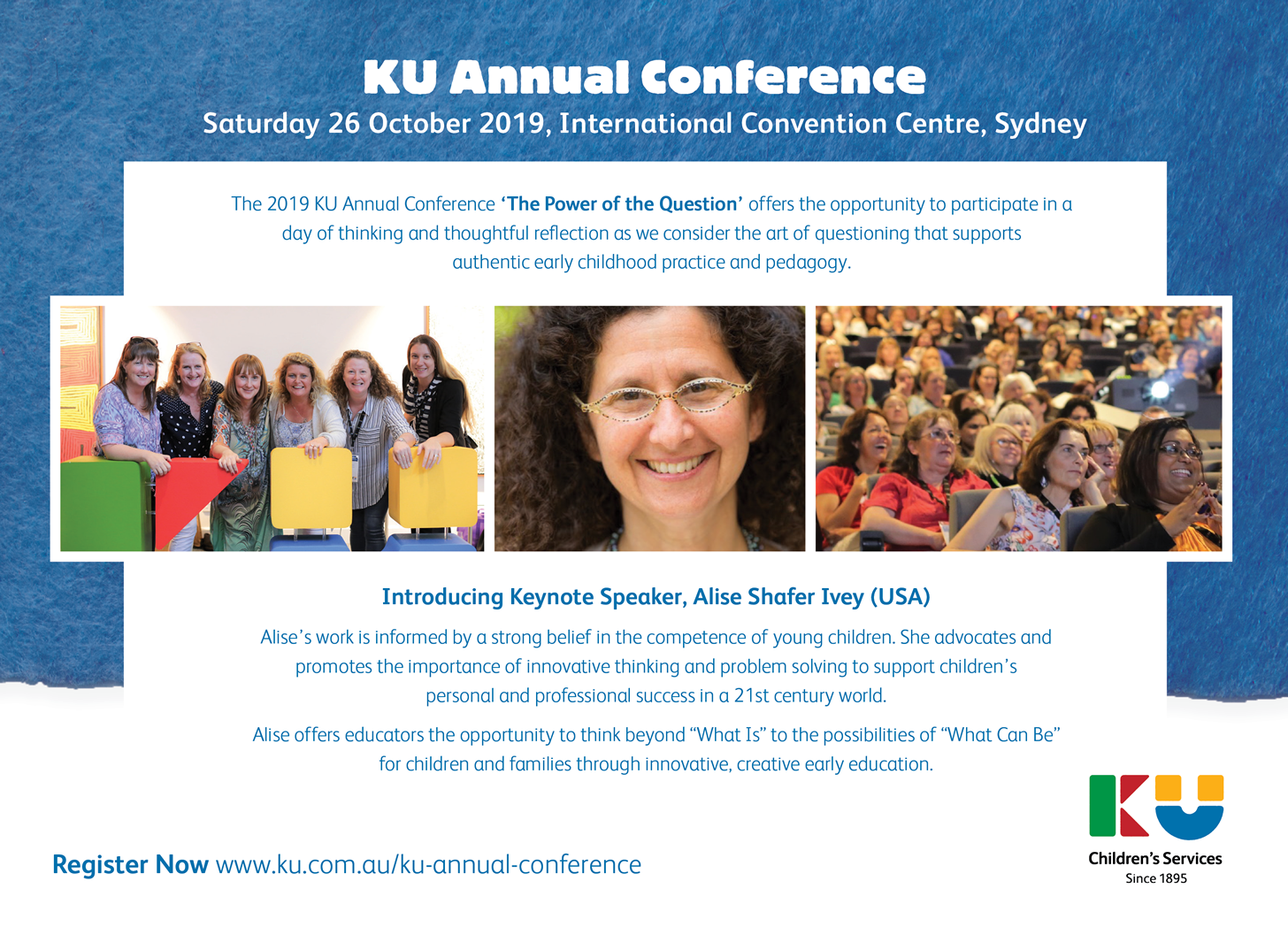You are invited to the KU Annual Conference 2019. We are excited to introduce Alise Shafer Ivey as this year’s keynote speaker. Alise’s work is informed by a constructivist educational approach and a strong belief in the competence of young children. Alise advocates and promotes the importance of innovative thinking and problem solving to support children’s personal and professional success in a 21st century world. Her work offers teachers the opportunity to think beyond What Is to the possibilities of What Can Be for children and families through innovative, creative early education.
Five minutes with Alise Shafer Ivey
The KU Annual Conference has the theme of 'The Power of the Question'. How does this tie in with your work?
To think is to question, to question is to assume that you don’t know. In that precarious, but exciting space of not knowing we are open to learn, to think, to imagine. Perhaps Daniel Wahl says it best in his book Redesigning Generative Cultures, “The art of asking beautiful questions is about challenging assumptions; inquiring about things normally taken for granted; and wondering about new possibilities.”
Indeed, our questions, and perhaps more importantly the questions that children ask, are the catalyst to innovation, empathy and understanding.
What are some of the key messages that you share with your audience?
School has traditionally been a place of questions and answers, call and response. The tidy answers that keep education efficient and measurable undermine the educational goals of thinking, seeking multiple perspectives and acknowledging the messiness that marks the human experience.
What are the main aspects of your keynote presentation?
During our time together, we will investigate the intersection of science and imagination. We will explore the edges of what is plausible and imagine realms of possibility that exist beyond the boundaries of narrow truths. We will ask ourselves, how can schools foster thinking that recognises and embraces the great complexity of life?
What are your top three tips for teachers?
- listen
- doubt and believe, simultaneously and in equal measure, and
- question every unexamined belief about what it means to teach and what it means to learn (if only because it’s a good habit to question our assumptions and fight complacency).
To register for the KU Annual Conference to be held on 26 October go to https://kuchildrensservices.arlo.co/courses/697-ku-annual-conference-2019-the-power-of-the-question








































































































































